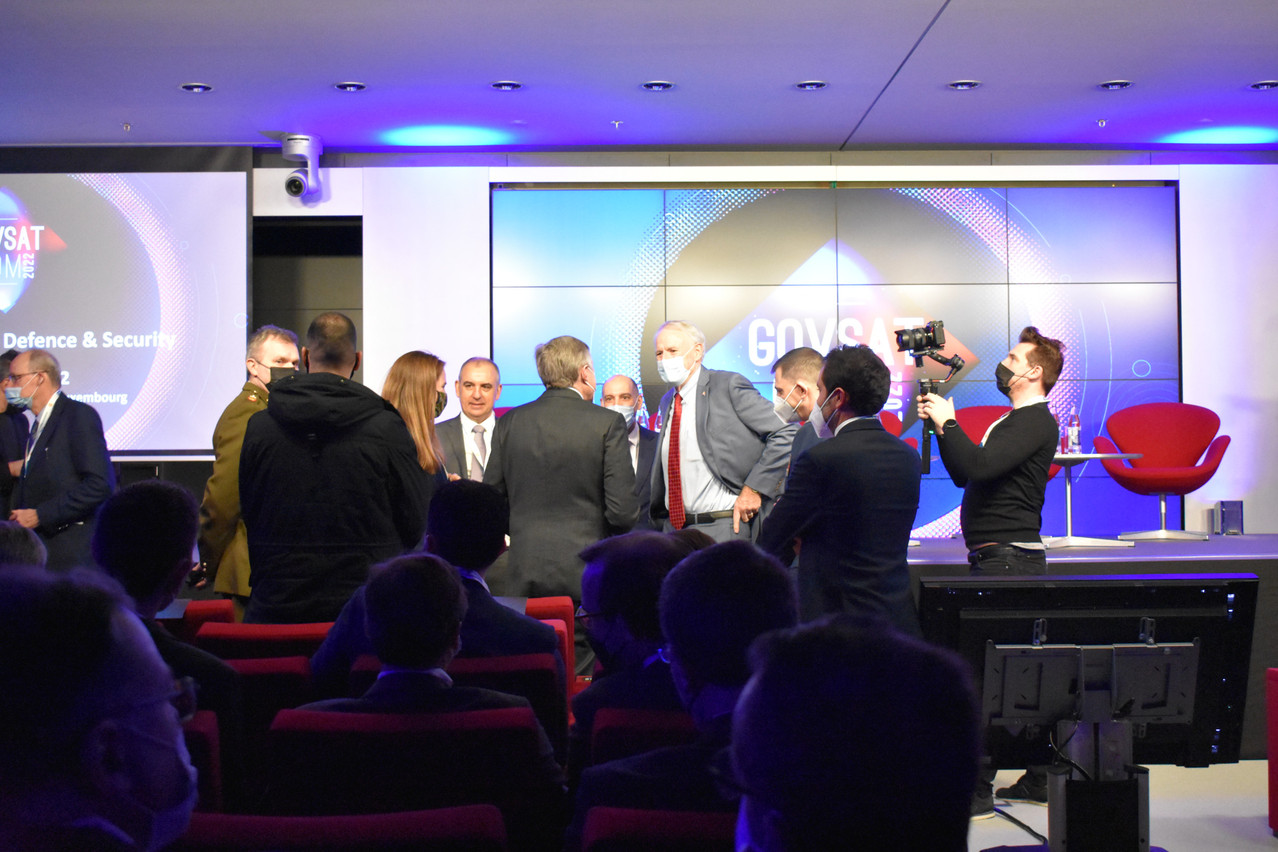Russia’s aggressive geopolitical ambitions have brought into sharp focus the importance and ever growing need for effective communication, intelligence and cooperation in space and cyber space.
As well as sponsors, panelists and key note speakers at the the 6th edition of the conference, several big players in the defence and aerospace industry were in attendance. They included contractors such as Leonardo, Thales, Honeywell, Lockheed Martin, Airbus. The newly appointed US ambassador to Luxembourg, Thomas M. Barrett, also made time to attend for Bausch’s speech.
Bausch had been expected on Thursday morning to announce Luxembourg’s first space defence strategy after opening GovSatCom. However, due to the fast moving circumstances in eastern Europe the press conference was postponed until Monday, when he will also officially present the plan to parliament. Bausch did however provide a quick run-down of what to expect in his opening remarks.
In addition to the grand duchy’s GovSat-1 satellite launched in 2018, the Luxembourg Earth Observation System (LUXEOSys) a new national defence satellite is expected to launch in 2023. Designed for governmental and military purposes, this will allow Luxembourg to participate more actively in the Europe and Nato defence efforts.
It will also help in humanitarian efforts and with the “monetisation of environmentalism.”
In his speech, Bausch--and almost every keynote speaker--outlined how dependent our lives are becoming on space, how it is critical to our way of life, and this means we are becoming more vulnerable to potential threats.
With international actors, such as China and Russia testing and incorporating anti-satellite capabilities within their military, the weaponisation of space is no longer a possibility but very much a reality. In November 2021 Russia destroyed a satellite with a missile. Other hardware, such as hypersonic weapons, are also currently being developed by France, Italy and Spain.
In light of the ever-accelerating space race, Bausch revealed a key part of Luxembourg’s soon to be announced space strategy will be to collaborate more closely with “like minded allies,” and to provide “reliable and controlled capabilities,” to Luxembourg’s partners allowing for synergies and for allies to leverage Luxembourg’s expanding expertise.
With the US ambassador seated in the front row, Bausch detailed how SES’s new o3b constellation will open new collaborative opportunities with the US space force.
Other key aspects of Luxembourg’s space defence strategy are expected to revolve around ensuring the resilience of space capabilities, with increased access to services, protecting equipment and developing new systems guaranteeing access to partners “for peace”.
Situational awareness (protection against space debris), freedom of access to space as well as establishing norms in space for peace were also mentioned
An official press release on Monday is expected to explain in more detail Luxembourg’s four pronged approach to space security and how it intends to establish itself as a point of reference for all its allies.
